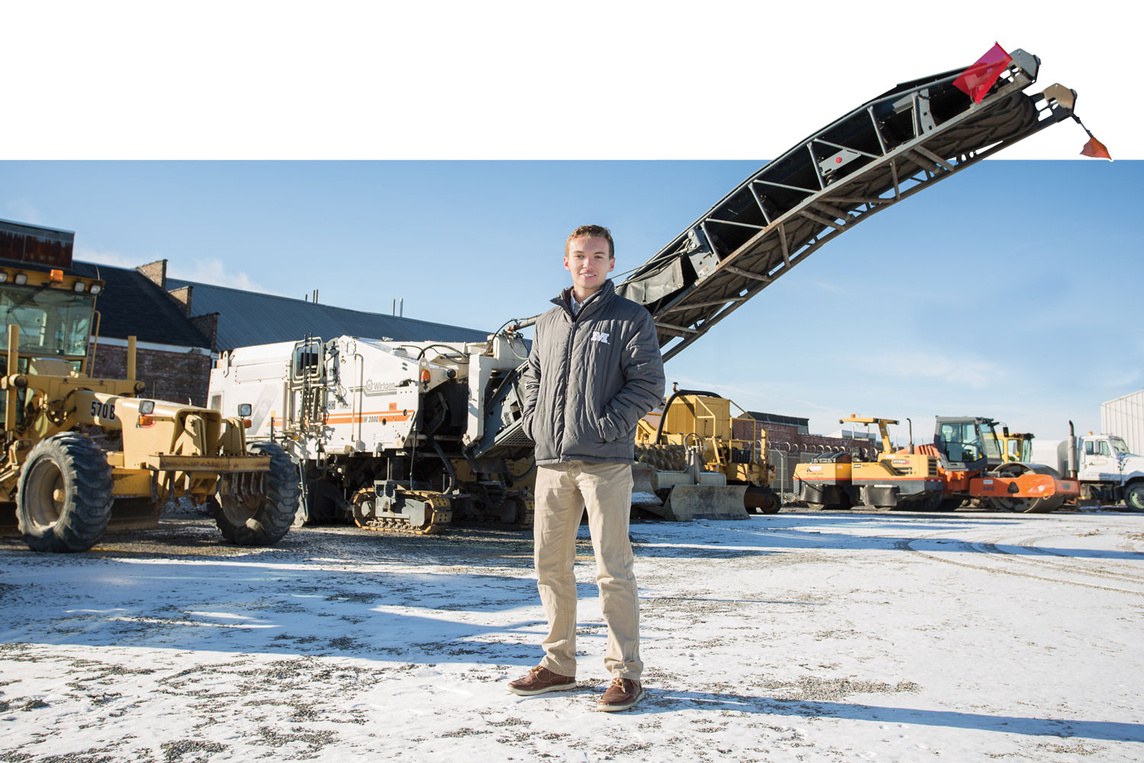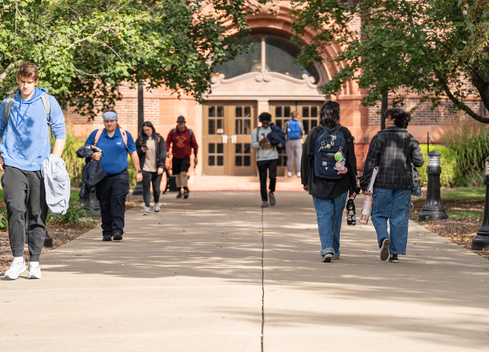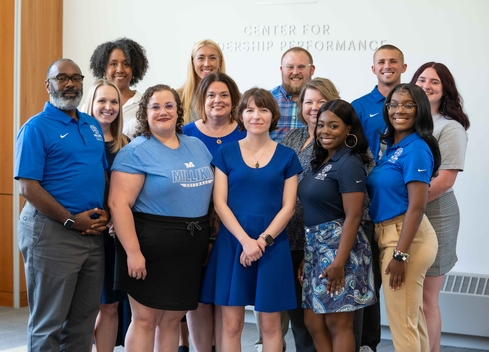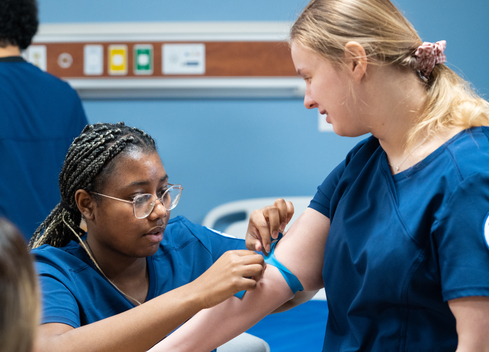Cold Facts
Whitley Sapp, a sophomo
re physics major from Decatur, was one of only six students to receive an Institute for Science Entrepreneurship (ISE) undergraduate fellowship last semester. For his fall fellowship, he was part of a team of three other students working under the direction of Dr. Casey Watson at 300 Below Inc., a cryogenic company, where they planned to examine the possible positive impact of cryogenic treatment on the transformers and solar cells of wind turbine gearboxes.Last summer, Sapp interned at Dunn Co. of Decatur, a full-service pavement construction company, where he worked with their cold in-place recycling program. Dunn asked him to continue on at the firm during the fall semester.
MM: What have been your responsibilities at Dunn Co., and what are the advantages of cold in-place recycling for pavement reconstruction?
WS: My primary responsibility has been to take numbers from past and future recycling jobs, calculate the various environmental savings benefits and use that data to create a “green sheet” for each project. I’ve also put together an application checklist for county engineers or other potential customers to use when deciding whether the cold in-place process is applicable for their needs. I’ve also worked on a brochure compiling some of the environmental benefits that I discovered.
There are several advantages to using cold in-place recycling. The process delivers long-lasting results with less maintenance than a traditional asphalt road, because it gives the road a flexible base and reduces future cracking by 50 percent. The process also minimizes traffic disruption and eliminates closed roads by working one lane at a time. Some environmental benefits I found during my research include a 72 percent reduction of greenhouse gas emissions, a 98 percent reduction of diesel fuel consumption for hauling materials and an 80 percent reduction in the energy used to produce/reprocess the road materials.
MM: Your experience working with two local companies is a strong example of Millikin Performance Learning. What has Performance Learning meant to you?
WS: As a Decatur native, working to expand local businesses and to advance my hometown means a lot to me, as does the experience I’ve gained through Millikin’s Performance Learning model. During my time at Dunn, I’ve had the opportunity to get to know and work with some great people, both in the office and on the site. In addition to working in the office, a lot of my time during the summer was spent traveling around the state with Dunn’s cold in-place recycling representative, Aaron Osman, to different job sites where I observed the process firsthand and gained a better understanding of how it all works. While onsite, I also had the opportunity to meet several civil engineers and get a general understanding of what their jobs entail. As a student, Performance Learning has helped me by opening my mind up to different ideas and building my confidence.
MM: How would you describe Performance Learning to a prospective Millikin student?
WS: Performance Learning allows students to get hands-on experience in the field they are pursuing. It helped me build valuable skills by being part of an office environment and working with others to achieve the goal of the company. Also, having face-to-face conversations with people with job titles that I hope one day to have helped build my confidence that my dream can be reality if I stick with it.
MM: What has been most memorable about your overall Millikin experience to date?
WS: The ISE work that I’ve done has certainly been the highlight of my Millikin experience. The dedication of the staff and the student-
to-faculty ratio at Millikin allows more students to have opportunities they wouldn’t find at a larger school.
MM: What are your plans after graduation? Where do you see yourself in 10 years?
WS: After Millikin, I plan to attend graduate school for mechanical engineering. I have yet to decide where I would like to go; however, I’m thinking an escape from the harsh winters of Central Illinois would be nice, at least for a couple of years. In 10 years, I hope to be improving the world as an engineer, continuing to work on old cars and trucks as I do now, and pursuing my lifelong goal of fixing up an old farmhouse on a nice plot of land.



